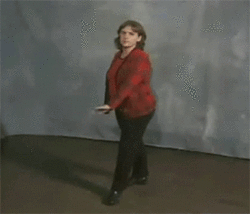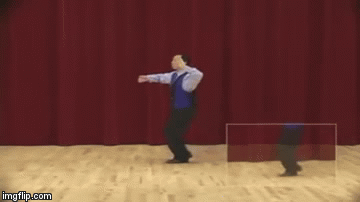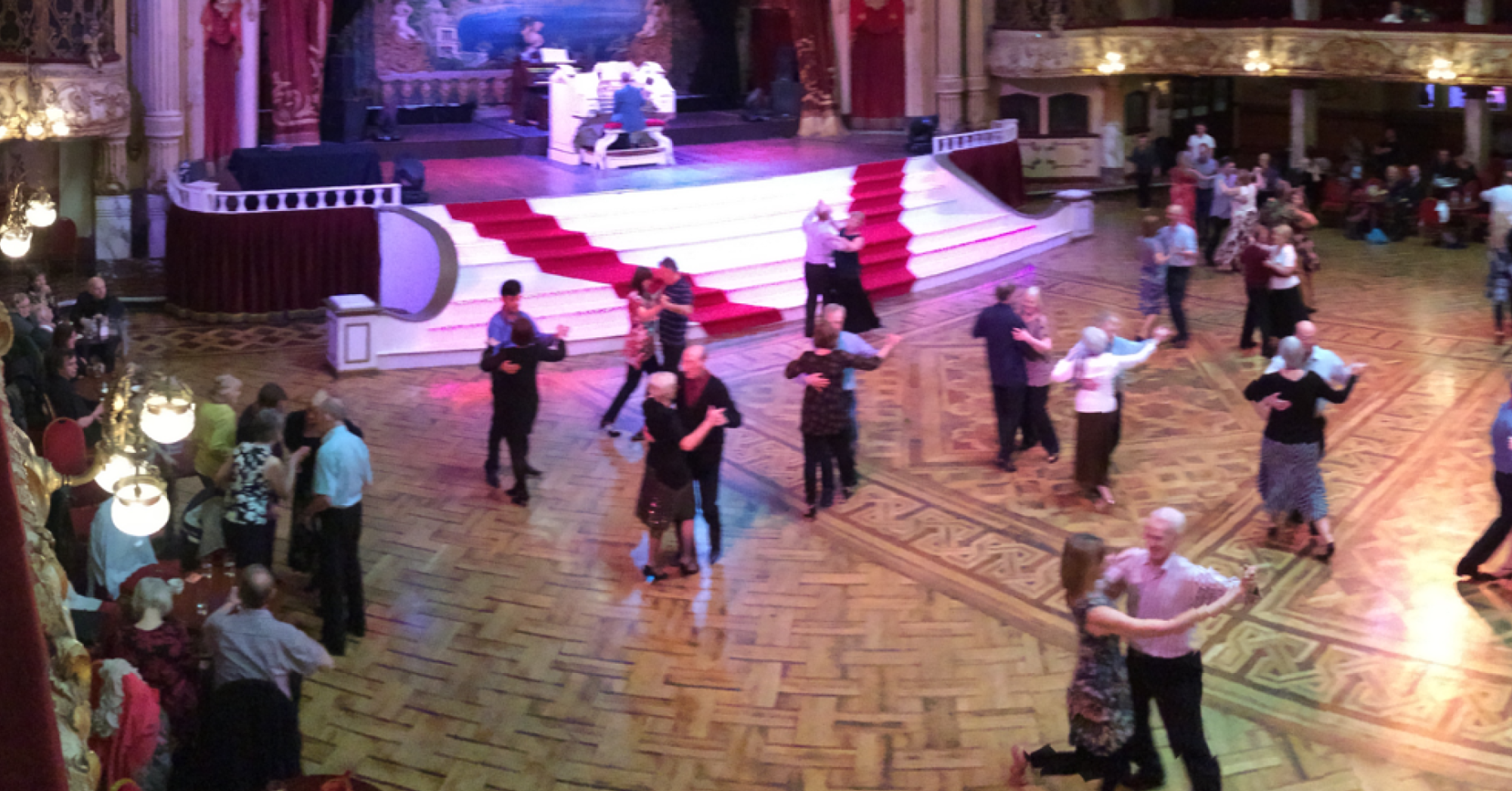Ready for more punishment? Today, we look at three new dance exercises that improve your balance on turns and rise and fall, so you can handle the more complicated dance maneuvers with style.
4. The Turning Exercise
Basic:
Step forward onto the ball of your foot, and without losing momentum, slightly twist your hips to turn 1/8 in the direction of the foot you stepped with – leftward for the left foot, for instance. Try again if you can’t stay balanced on the LF at the end. Repeat on the other foot, and gradually increase your turn by increments of 1/8.
Advanced:
Continue to increase how much you can turn, eventually seeing if you can pull off multiple turns in a row. Try starting a turn by stepping backwards, turning rightwards when stepping with the LF, and vice versa (WARNING: this will be a lot harder!)

Pretty close, actually.
5. The Rise and Fall Exercise
Basic:
This is a great exercise for building for dance balance for ballroom dances with rise and fall, like waltz. Standing with feet together, 1) slowly elevate yourself onto the balls of both feet, 2) hold, 3) slowly lower until your heels touch the ground, 4) continue lowering by gently bending the knees, and 5) slowly straighten the knees to return to standing position. Complete each step over a slow 3-count.
Advanced:
Return to your walking exercise, but add a slow rise over three steps, lowering at the end of step three, and repeating. Steps two and three would be taken on the balls of the feet.

6. The Pivoting Exercise
Basic:
This is similar to the turning exercise from before, but every turn will be a half turn. Stepping forward with either foot, twist the hips to turn in the direction of the foot you stepped on. Hold the opposite foot behind you without weight, so it traces a semi-circle on the floor. Finish on the same foot you started the turn with, and hold for a moment to make sure you are balanced. Now, step back on to the ball of the back foot, and make another half turn in the same direction, holding the other foot in front of your body. Repeat.
Advanced:
Gradually increase the speed of the turns, but continue to check that you can stop on either foot without falling out of the turn.
Try and spend at least an hour a week on these and the previous dance exercises, and watch your balance and control steadily improve. Next week, we’ll wrap up the series on balance with some troubleshooting tips to make the most out of your dance exercises.
